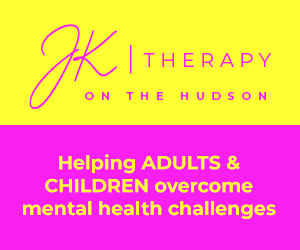The year 2020 has been called almost every name in the book — a disaster, a travesty, a joke, even a flaming hot pile of crap. It’s language that’s hard to argue with; after all, so far the year has seen a global pandemic that has disproportionately affected thousands {if not millions} of people of color and 22+ tragic incidents of racially-motivated police brutality that have sparked worldwide protests in the name of the Black Lives Matter movement.
But, despite the inarguable grief it has produced, what if it is the year of real, systemic change?
With coronavirus disproportionately targeting POC Americans and impoverished communities as well as the Black Lives Matter movement picking up significant momentum in the wake of the murders of George Floyd, Breonna Taylor, Rayshard Brooks, Ahmaud Arbery, and the shooting of Jacob Blake, which resulted in his paralyzation — #SayTheirNames — New Jersey Governor Phil Murphy is introducing legislation some say could be “the future of anti-poverty policy.”
After all, coronavirus and police brutality aren’t the only issues that disproportionately impact POC, poverty does, too. With an anti-poverty policy that seeks to set up people born into poverty, providing a financial kickstart, the U.S. could be on its way to closing the racial wealth gap — a problem highlighted by the Black Lives Matter movement and the deadly impacts of coronavirus.
The concept is called “baby bonds.” Keep reading for more information on Gov. Murphy’s ‘baby bonds’ proposal and what it could mean for NJ.

What are baby bonds?
Baby bonds refers to the political, anti-poverty policy of gifting babies born into low-income families with money that has the potential to grow and accrue interest until the baby turns of age — a trust fund of sorts. According to The New York Times, “Gov. Phil Murphy has proposed giving babies from roughly the bottom 70 percent of the income distribution a $1,000 nest egg, payable with interest when the child turns 18.”
The NY Times adds, “The money could then be used to help pay for college or a home.”
Baby bonds would cost the state an estimated $80 million a year and is included in a recently amended state budget that Gov. Murphy proposed earlier this week.
“The inequities are too wide, too raw, to ignore,” Gov. Murphy said.
Read More: NJ Governor Signs Law To Require ‘Implicit Bias Training’ for Police Every Five Years
Where did the idea for baby bonds come from?
Baby bonds are hardly a concept that Gov. Murphy came up with himself; in fact, in honor of giving credit where credit is due, the idea was one of Senator Cory Booker‘s main platforms from his now-defunct presidential campaign. Booker has vehemently promoted baby bonds, arguing that by offering this money to the bottom 70 percent of income-affected households, the plan is actually “race-neutral.”
That being said, if the bottom 70 percent of income-affected households qualify for a baby bond, then that would extend significant financial help to many POC families. Specifically, Black families. After all, the current disparity in the wealth gap estimates white families are seven times richer than Black families. As such, it could then have the potential to close the U.S.’s racial wealth gap, Booker also argues.
When Booker was still running for the Democratic nomination in the 2020 presidential election, he said, “I’m not going to wait. My community — communities of color, low-income communities of all backgrounds — urgently need a change now.”
Nest eggs were also a key proposal in Hillary Clinton’s first presidential campaign in 2007. At the time, Clinton proposed setting aside $5K, money that could mature and later be used toward college education or to buy a house, for babies.
Could baby bonds be the policy to enact such a change? Could they truly close the racial wealth gap in the U.S. and provide more wealth to communities historically impacted by poverty?

How could baby bonds impact New Jersey?
Though Sen. Booker was originally planning for baby bonds to be enacted on a federal scale, Gov. Murphy’s version of the baby bonds policy is “scaled-down,” tailored to only the State of New Jersey. However, if approved by NJ legislature, baby bonds may positively impact impoverished families and the Black youth of New Jersey in the long term.
See More: How to Vote in the 2020 Presidential Election in Hudson County: The Options
Jason DeParle wrote in a separate essay for The NY Times that, “Subsidizing the incomes of poor families leads their children on average to better health, more schooling, and higher earnings as adults.” With a $1,000 nest egg having the potential to mature to as much as $1,270 come the time a baby-bonds baby turns 18, more young adults born into poverty will be able to afford housing and even college.
According to the U.S. Census Bureau most recent statistics, 9.5 percent of New Jersey lives in poverty, with the median household income averaging $79,364. About 18 percent of African Americans in NJ live in poverty and 17.4 percent of Latinos. With communities of color very clearly experiencing poverty in such disproportionate numbers, such statistics suggest that the baby bonds policy could disseminate nearly $50,000 to impoverished families.

Lending financial help to children born into poverty is a crucial part of how the plan can positively impact New Jersey’s poor youth. Children are significantly more likely to be affected by poverty. The Coalition of Human Needs reports, “As with adults, children of color experience poverty at higher rates than their white peers. In 2017, 7.3 percent of non-Hispanic white children in the state lived in poverty, while 25.6 percent of African American and 22.8 percent of Latino children were poor.”
A nest egg given at birth could provide financial security for those born into poverty. It could mean a decrease in homelessness, an increase in those pursuing higher education, and even act as a kickstarter in the way of establishing long-term assets.
Where do politicians stand on baby bonds?
Gov. Murphy is moving the legislation forward, now seeking approval by NJ legislature. Obviously, NJ Senator Cory Booker is also an outspoken advocate for the anti-poverty policy — calling Murphy’s reintroduction of the legislation “an igniter of dreams” and adding that it “immediately gives kids a stake in expanding their imagination about what’s possible for them.” However, Booker did not receive the Democratic nomination for the 2020 presidential campaign; former vice-president Joe Biden accepted the nomination.
So, where does presidential candidate Biden stand on enacting baby bonds on the national level? No word yet. Biden has yet to take an official stance on baby bonds.
Though we may not yet know Biden’s and other politicians’ stances on the potential of baby bonds, the legislation has already gleaned some detractors. Senator Michael L. Testa Jr. {R} has criticized the legislation, alleging that New Jersey cannot afford such a program. Testa’s main criticism is that taxpayers will be asked to take on even more debt.
“It’s a feel-good measure that accomplishes nothing,” Sen. Testa said. “It’s not even a down payment on a car.”
In response to criticisms, particularly that of Sen. Testa, Gov. Murphy added, “We happily reserve the right to top it off with more money. This is the start.”
Have a news tip? Email us at hello@hobokengirl.com.











